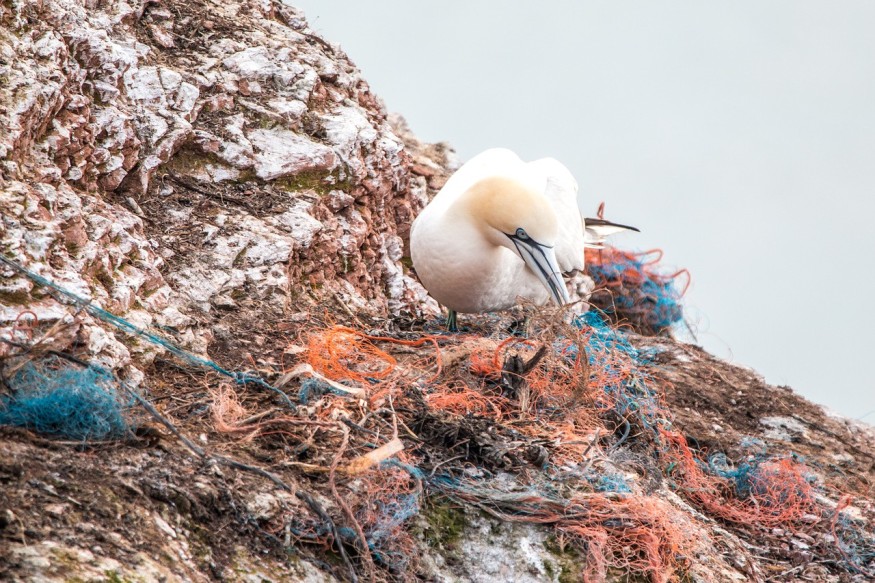
Greenpeace recently discovered that discarded fishing gear makes up the majority of massive plastic pollution in the oceans.
According to a report from The Guardian, more than 640,000 metric tons (same weight as 55,000 double-decker buses) of traps, lines, nets, and pots used by commercial fishing dumped to the sea per year.
Greenpeace's report, which delivers on the most recent research on "ghost gear" that pollutes the oceans and kills marine wildlife, asks for worldwide action to end plastic pollution.
The report added discarded fishing gears were deadly. "[Fishing gears threaten] the wildlife for [decades, entangling] everything from small fish and crustaceans to endangered turtles, seabirds and even whales," it said.
Last year, about 300 sea turtles were found dead off the coast of Oaxaca, Mexico, due to entanglement in "ghost gear," the phrase which refers to fishing gears lost or abandoned in the sea.
In October, a pregnant whale was entangled in ghost gear near the Orkney coast. According to the scientists, the filter-feeder system was found in the animal's mouth and the fishing gear was jammed in its baleen. The scientists added the net affected the minke whale's feeding and movement.
Ghost gears contributed the most in the ocean's massive plastic pollution. One study found that ghost gear made up as much as 70 percent of macroplastic pollution discovered drifting on the ocean's surface.
According to a research, both microplastic and macroplastic litter the world's waters. Macroplastics could be seen with the naked eye just like the ghost gears. Microplastics, on the other hand, include extremely tiny plastic particles with less than 5 mm (0.2 inch) in length.
According to Greenpeace, the impacts of plastic ingestion and toxicity may persist long after fishing gear loses its form as modern plastics last up to 600 years in marine environment.
An official from Greenpeace UK told The Guardian said the results tell as much about the problem in the United Kingdom as they do about the worldwide issue. She added world leaders must act to protect the global oceans and hold under regulated fishing industry to account for the dangerous waste.
"Ghost gear is a major source of ocean plastic pollution and it affects marine life in the [United Kingdom] as much as anywhere else," Louissa Casson, an oceans' campaigner at Greenpeace UK, said. The waters in the United Kingdom "do not exist in a vacuum" as "oceans have no borders," she added.
The "great Pacific garbage patch" estimated that the Pacific Ocean had 42,000 tonnes of mega plastics wherein 86 percent were fishing nets. Henderson Island likewise have 18 tonnes of plastic debris and was accumulates at a rate of thousands of pieces a day.
According to Greenpeace, overcrowded fisheries, and illegal fishing also contributed to ocean pollution apart from the prevalence of ghost gears. "[Unregulated fishing] and slow political progress in [limiting] industrial fishing allow this problem to exist and persist," the report said.
Greenpeace urges the United Nations treaty to implement a comprehensive framework for marine protection and pave the way for a global network of ocean sanctuaries covering 30 percent of the world's oceans by 2030.
© 2026 NatureWorldNews.com All rights reserved. Do not reproduce without permission.





